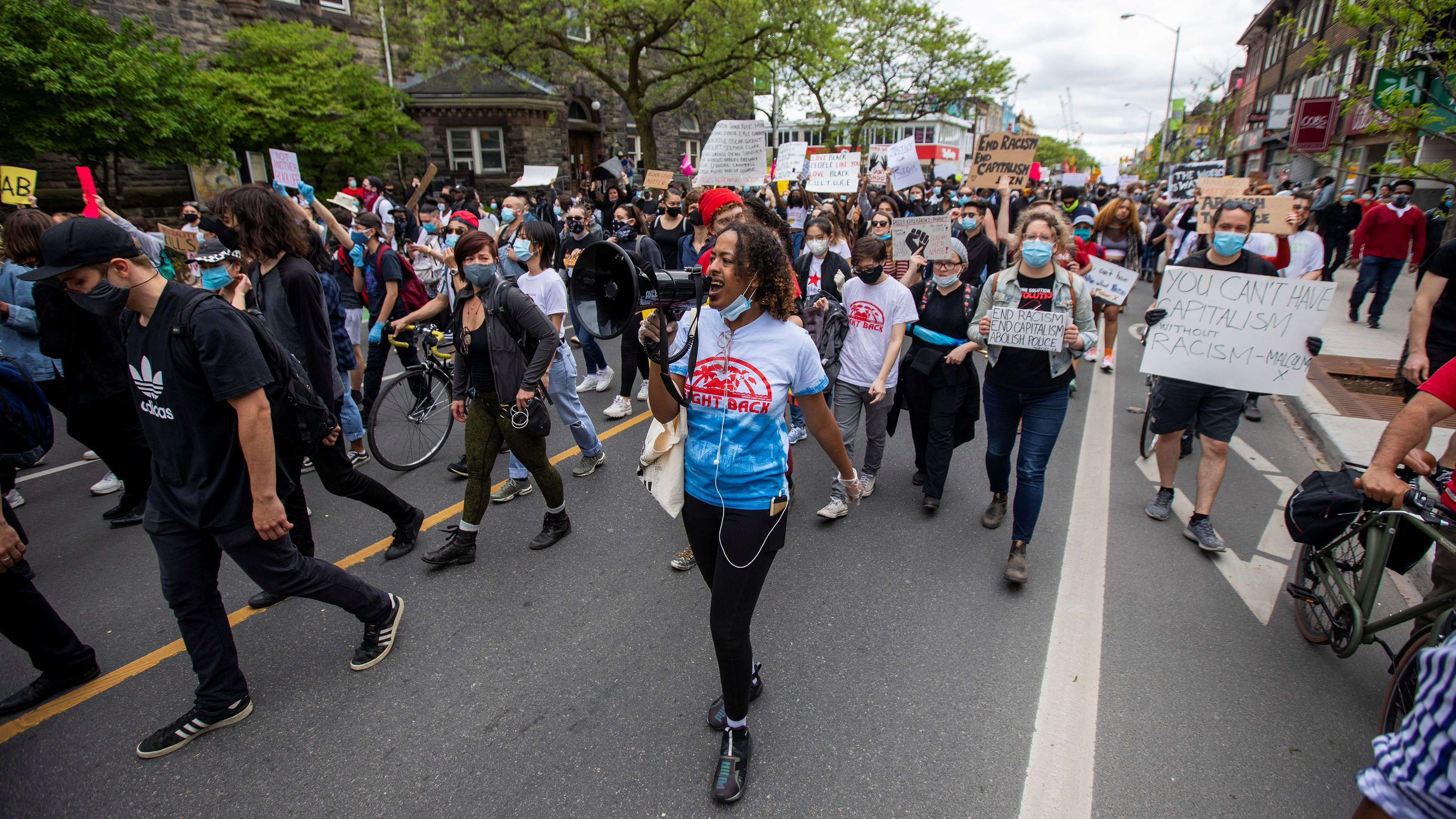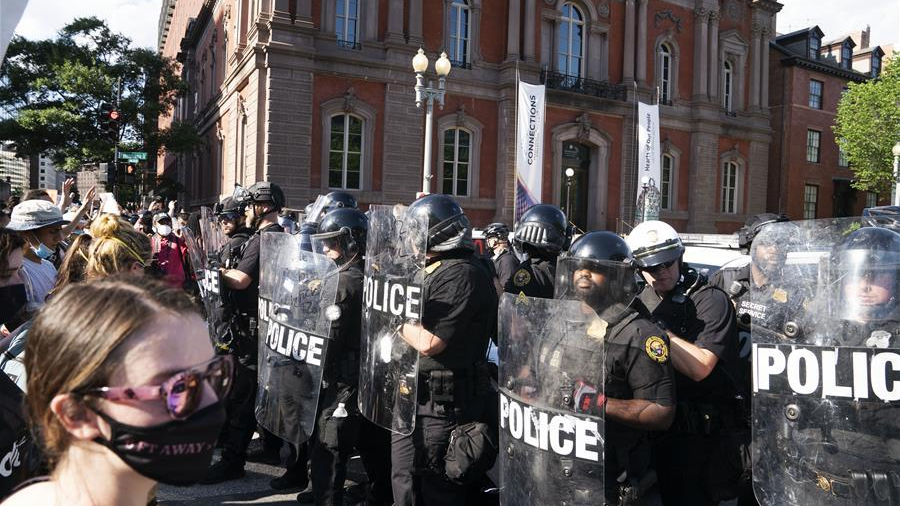
A protest near the White House over the death of George Floyd in Washington, D.C., U.S., May 30, 2020. /Xinhua
A protest near the White House over the death of George Floyd in Washington, D.C., U.S., May 30, 2020. /Xinhua
Editor's note: Tom Fowdy is a British political and international relations analyst and a graduate of Durham and Oxford universities. He writes on topics pertaining to China, the DPRK, Britain, and the U.S. The article reflects the author's views, and not necessarily those of CGTN.
As protests over the death of George Floyd have waged on in the United States, an interesting pattern has emerged among some of the country's politicians: That being, the more a given senator or office holder actively supported unrest and chaos in Hong Kong, the more they seem to paradoxically and even aggressively oppose the same phenomenon in their own country. While claiming to show support and solidarity for events in the Chinese city, vocal senators such as Tom Cotton, Joshua Hawley, Marco Rubio and others have all called for assertive action in tackling America's unrest, the same of which they would have been to slam as oppression and tyranny in Hong Kong.
Cotton, the senator for Arkansas, said on Monday afternoon that "Anarchy, rioting, and looting needs to end tonight," adding that "We need to have zero tolerance for this destruction," threatening "Let's see how tough these Antifa terrorists are when they're facing off with the 101st Airborne Division."
Yet only last year had he tweeted "the police violence against protesters in Hong Kong is unacceptable" and described the protesters as "brave individuals." Hawley, the senator for Missouri, also an extremely pious voice on the city, criticized American protesters, claiming that they "endanger innocent citizens and police officers" and "destroy the livelihoods of neighbors and friends," demanding that "they must stop"– yet previously praised "the bravery" and "courage" of those in Hong Kong and blamed the Hong Kong police for escalating their use of force, as reported by South China Morning Post last October.
The hypocrisy is staggering. What is one man's bravery is another's tyranny, and vice versa. Now avoiding the distraction of getting entangled in a distracting debate as to which protests were more destructive, or for that matter arguing which ones were justified and which ones were not, what this double-minded behavior by American politicians shows us is that support for Hong Kong protests was weighted on geopolitical opportunism rather than serious sincerity or solidarity, and in turn exposes a contradiction in U.S. conservative thought whereby unrest and destruction abroad is treated as something to be glorified and encouraged, but that which is at home bares no legitimacy. This creates the literal "doublespeak" we see today.

Protesters confront police near the White House during a protest over the death of George Floyd in Washington, D.C., U.S., May 30, 2020. /Xinhua
Protesters confront police near the White House during a protest over the death of George Floyd in Washington, D.C., U.S., May 30, 2020. /Xinhua
First of all, let's cite the obvious. Those who have most aggressively advocated support for Hong Kong protests in the United States are not advocates of justice or liberal values, they are right-wing Republican politicians who advocate an aggressive foreign policy overseas, utilizing the mantle of American exceptionalism as their point of justification.
Those who advocate such political thought deliberately seek to mask American geopolitical interests and opportunism by painting every situation as a binary battle between good and evil and then framing the United States as a righteous country who intervenes in the pursuit of the common good. As a result, senators committed to pursuing confrontation with China feigned support for Hong Kong protesters as a geopolitical means to an end and offered a one-sided portrayal.
However, when one then looks at the domestic situation within the United States, this opportunism is subsequently exposed as the same individuals pushing for chaos within Hong Kong suddenly do not advocate the same sense of justice concerning the George Floyd protests. This reveals another key tenure of American exceptionalist thought, that the use of politicized violence is acceptable and dismissable in the advancing of American state interests (be it encouraging protesters in Hong Kong, or use of the army to suppress unrest within the U.S.) but it is subsequently illegitimate and abhorrent if it challenges the interests of the American state (which the current protests are doing), which are not answerable to anyone or anything.
In doing so, this sets out the contradiction in their dual approaches by revealing how the use of American exceptionalism in foreign policy issues is but a means to an end, than the real invocation of a universal value system.
These individuals invoke the "moral superiority" of America in order to interfere in other countries and push a given agenda, and in turn that invoked superiority does not apply as a universal or consistent rule when it is faced with a situation at home, and thus they demand actions against demonstrators which have not only far exceeded the events in Hong Kong, but if those actions had been taken in Hong Kong they would have certainly been condemned as tyranny.
As a whole, this only illustrates the selective opportunism and insincerity which the actions of these senators embody, hiding behind an ideology which they pretend to be a pursuit of justice. Hong Kong is but a means to an end.
(If you want to contribute and have specific expertise, please contact us at opinions@cgtn.com.)